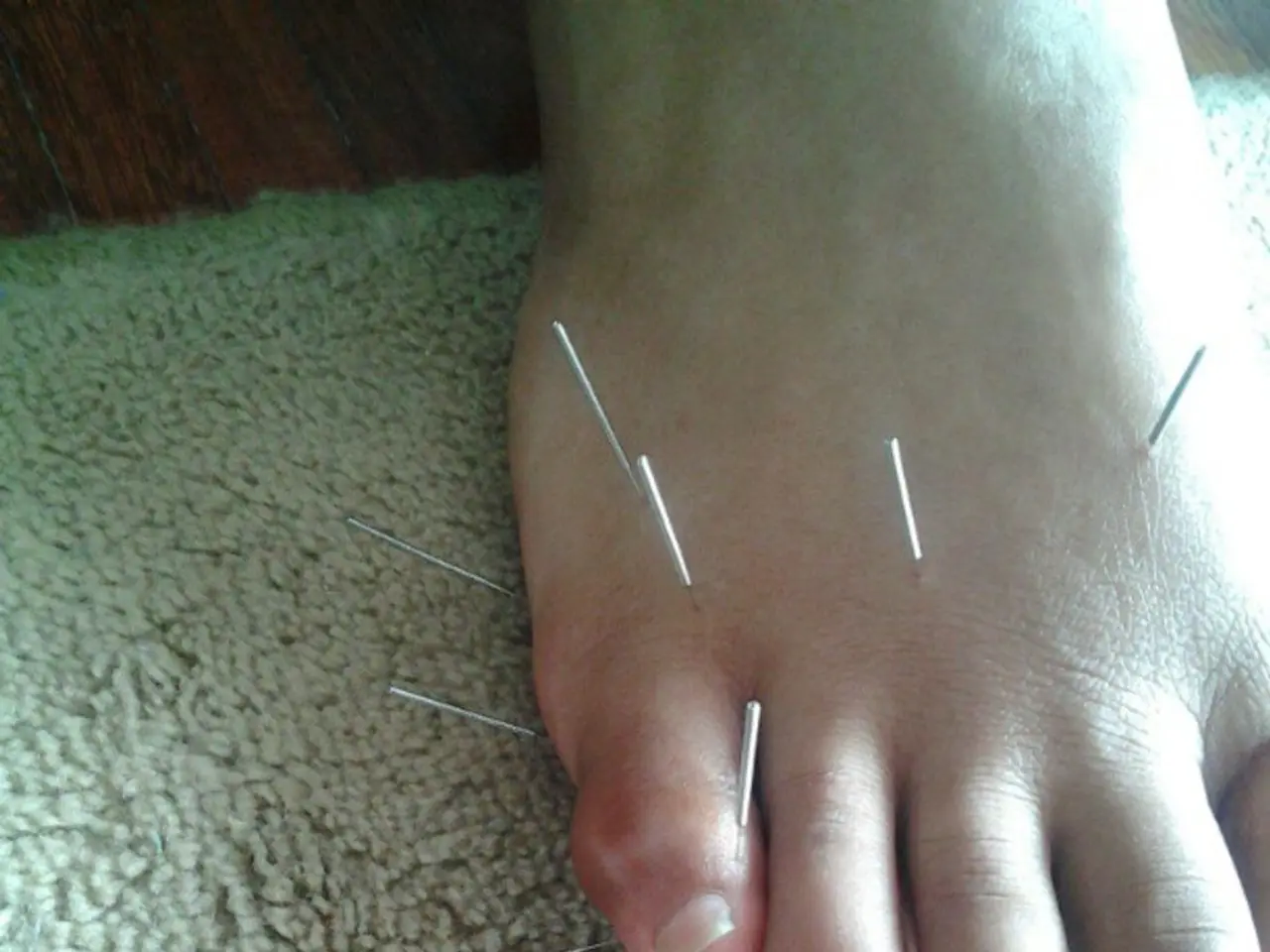Home Cures and Organic Techniques for Managing Leukemia
Leukemia, a type of cancer that primarily affects the white blood cells, is both common in adults and children under the age of 15. While conventional treatments like chemotherapy and targeted therapy are essential for managing the disease, complementary therapies can play a supportive role in easing symptoms and side effects.
Current research suggests that natural remedies such as acupuncture, massage therapy, mind-body and relaxation techniques, diet and nutrition, herbal remedies, and essential oils can offer relief.
Acupuncture, a practice that involves stimulating specific pressure points, may help alleviate treatment-related symptoms such as nausea, pain, and fatigue. However, it is crucial to consult with healthcare professionals before use.
Massage therapy can promote relaxation and potentially reduce anxiety and pain, though evidence for its effectiveness in cancer symptom management is limited.
Mind-body and relaxation techniques, including tai chi, meditation, aromatherapy, and art therapy, can help reduce stress and improve mental health during treatment.
Diet and nutrition play a crucial role in maintaining strength during and after treatment. Adequate diets higher in calories and protein should be guided by a dietitian experienced with cancer patients.
Herbal remedies such as mint and chamomile can help manage specific chemotherapy side effects. Mint relaxes gastrointestinal muscles, reducing nausea, while chamomile offers anti-anxiety and antispasmodic effects, which may alleviate treatment-related digestive discomfort.
Baking soda (sodium bicarbonate) has shown preliminary promise in enhancing immune responses and chemotherapy effectiveness by neutralizing tumor acidity and improving T cell health in leukemia treatment contexts. However, more research is required before routine application.
It is essential to note that natural remedies should never replace standard leukemia treatments. They serve best as complementary approaches to improve quality of life and manage side effects. Patients should always discuss any natural or complementary therapy with their healthcare team to avoid interactions or adverse effects.
While some studies suggest the possibility of using vitamin C to enhance the work of chemotherapy or other treatments, it is not currently recommended for humans. Similarly, homeopathy, an unconventional approach to medicine with no scientific evidence supporting its theories, is not recommended to replace established treatments for leukemia.
Some foods may aggravate certain side effects of treatment, such as foods high in sugar or fiber, spicy foods, caffeine, and citrus fruits. On the other hand, essential oils may help some people manage certain side effects of chemotherapy, such as tiredness or changes in appetite.
It is also important to be aware that certain herbal products can interfere with medications used to treat leukemia and should be avoided, including green tea supplements and St. John's wort.
In conclusion, while no natural remedies can treat, cure, or manage leukemia, complementary therapies can provide valuable support in managing symptoms and side effects. Always consult with your healthcare team before incorporating any new therapies into your treatment plan.
- Natural products, like herbal supplements containing mint and chamomile, can help alleviate certain chemotherapy side effects.
- Science continues to explore the benefits of home-based health-and-wellness practices such as acupuncture and massage therapy for managing leukemia-related symptoms.
- Mind-body techniques, such as tai chi, meditation, aromatherapy, and art therapy, can potentially reduce stress and improve mental health during medical-conditions like leukemia.
- Other leukemias and cancer symptoms might be eased with diet and nutrition, necessitating an adequate diet higher in calories and protein to be guided by an experienced dietitian.
- While some studies hint at the potential use of vitamin C in enhancing chemotherapy effectiveness, it is not yet recommended for humans, and homeopathy is not advocated over established treatments for leukemia.




